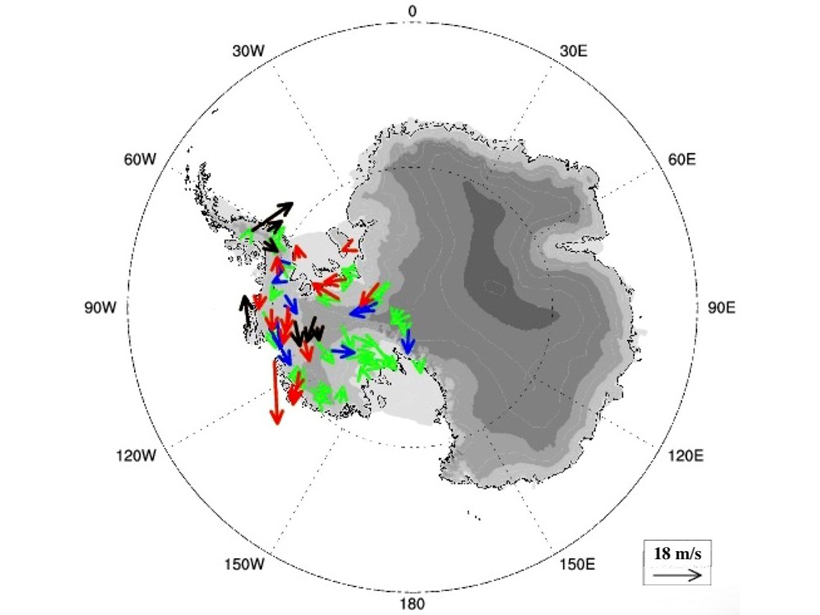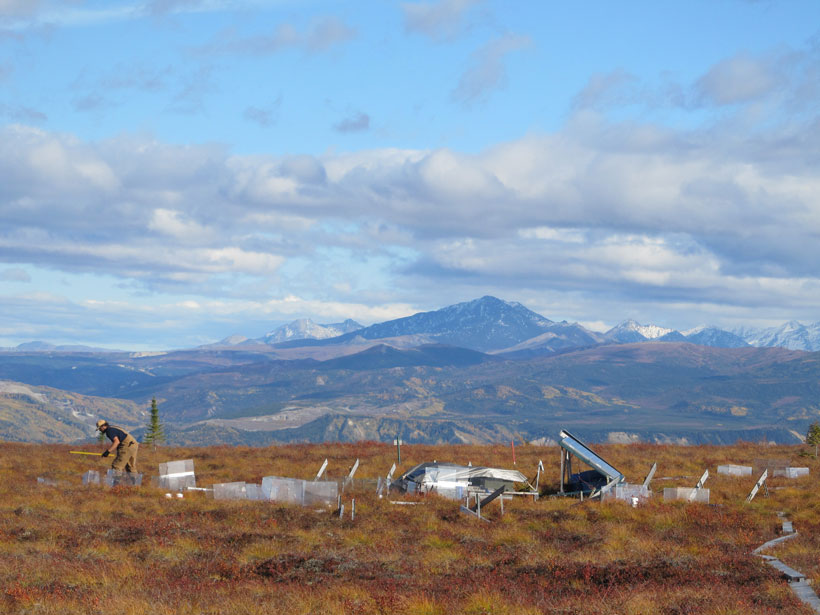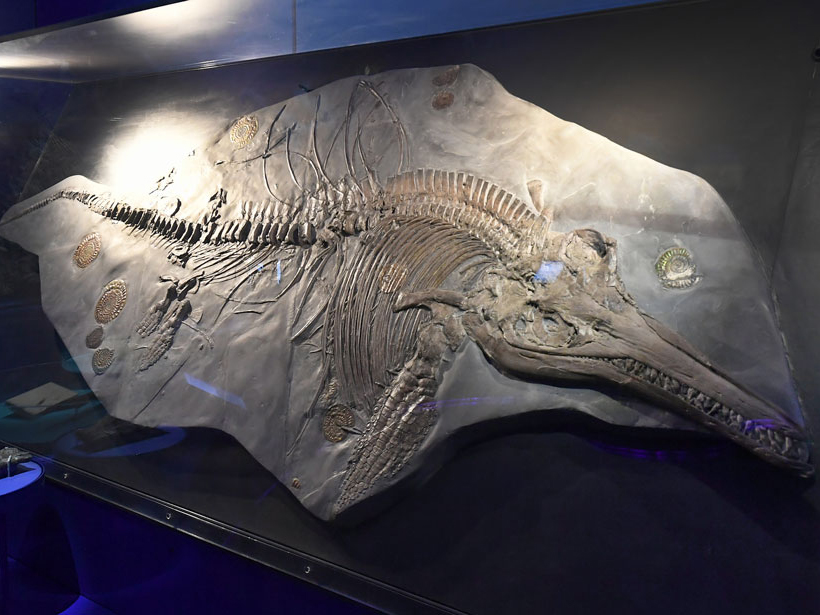Ludovic Brucker will receive the 2018 Cryosphere Early Career Award at AGU’s Fall Meeting 2018, to be held 10–14 December in Washington, D. C. The award is for “significant early career contributions to cryospheric science and technology.”
CC BY-NC-ND 2018
Elliott Receives 2018 Sulzman Award for Excellence in Education and Mentoring
Emily Elliott will receive the 2018 Sulzman Award for Excellence in Education and Mentoring at AGU’s Fall Meeting 2018, to be held 10–14 December in Washington, D. C. The award is given to “one mid-career female scientist…for significant contributions as a role model and mentor for the next generation of biogeoscientists.”
Dropsondes Reveal Atmospheric Boundary Layers Over Antarctic
636 high-resolution dropsondes reveal four types of atmospheric boundary layer over the Antarctic, including well-mixed and convective types.
How Nitrogen Contributes to Permafrost Carbon Dynamics
Nitrogen released into the soil from thawing permafrost in the Arctic could accelerate soil carbon decomposition and alter carbon dynamics, with global implications.
Dive into Stunning Sea-Inspired Art
Every year, children from around the world craft unique pieces of art showcasing species found in Massachusetts’s Stellwagen Bank National Marine Sanctuary. Take a dip underwater with these marine masterpieces.
Rosenfeld Receives 2018 Yoram J. Kaufman Outstanding Research and Unselfish Cooperation Award
Daniel Rosenfeld will receive the 2018 Yoram J. Kaufman Outstanding Research and Unselfish Cooperation Award at AGU’s Fall Meeting 2018, to be held 10–14 December in Washington, D. C. The award recognizes “broad influence in atmospheric science through exceptional creativity, inspiration of younger scientists, mentoring, international collaborations, and unselfish cooperation in research.”
Adames-Corraliza Receives 2018 James R. Holton Award
Ángel F. Adames-Corraliza will receive the 2018 James R. Holton Award at AGU’s Fall Meeting 2018, to be held 10–14 December in Washington, D. C. The award recognizes “outstanding scientific research and accomplishments of early-career scientists” who are no more than 3 years past receiving the Ph.D. degree.
AGU-Led National Study: Citizen Science Can Aid Science Learning
Improved design of citizen science projects in which nonscientists and scientists collaborate can boost the amount of science learning by nonscientists and communities.
How Did Life Recover After Earth’s Worst-Ever Mass Extinction?
Ocean animals at the top of the food chain recovered first after a cataclysm at the end of the Permian period. The extinction was triggered by events resembling the changes brewing in today’s oceans.
Huber, Ming, Romps, and Thornton Receive 2018 Atmospheric Sciences Ascent Award
Matthew Huber, Yi Ming, David Romps, and Joel Thornton will receive the 2018 Atmospheric Sciences Ascent Award at AGU’s Fall Meeting 2018, to be held 10–14 December in Washington, D. C. The award recognizes research contributions by “exceptional, mid-career scientists in the atmospheric and climate sciences fields.”





